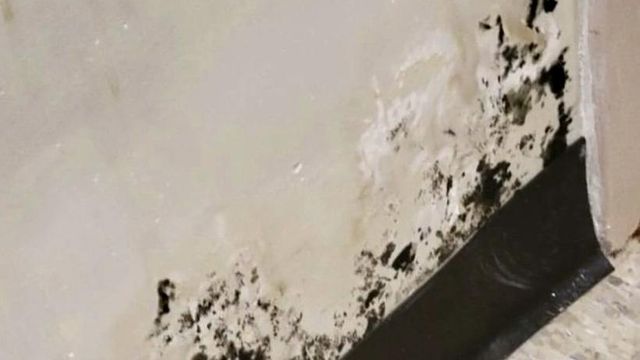Asbestos, water leaks and no A/C: Advocate describes living conditions of Fort Bragg soldiers
In the 1970s, the barracks on Smoke Bomb Hill at Fort Bragg were considered a state-of-the-art housing area for single soldiers living on post. However, time has taken its toll on the buildings.
Posted — UpdatedMold and other issues inside barracks built in the 1970s are forcing Fort Bragg military leaders to relocate 1,200 soldiers.
Military leaders must find places for the soldiers – who are single – to live. Then, they will have to repair or replace the barracks.
Melissa Godoy is an advocate for soldiers living in substandard housing.
“Slummy military family housing has been making the headlines the past couple of years,” Godoy said of the conditions she’s seen at Joint Base Lewis McChord in Washington state.
In the 1970s, the barracks on Smoke Bomb Hill at Fort Bragg were considered a state-of-the-art housing area for single soldiers living on post. However, time has taken its toll on the buildings.
Godoy has been in contact with soldiers living in the Smoke Bomb Hill barracks who say their rooms are covered with mold from the “floor to ceiling.”
"[They said] mold [is] just covering every surface in their room,” Godoy said. “They're coming back to their belongings full of mold.
“They're living with asbestos, severe water leaks, flooding, poor ventilation [and] no [air conditioning], so you can imagine living in North Carolina, it’s 100 degrees, peak summer, and it’s 100% humidity, and then you’ve been working outside all day and you want to back to a nice, cool room. Well, a lot of these men and women – they can’t because their A/C is broken in their whole building and so their building is 100-plus degrees."
Fort Bragg Garrison Commander Col. John Wilcox explained the decision to remove the soldiers and the plan to demolish the majority of the outdated barracks.
"You don't have 50-year-old buildings without issues," said Fort Bragg Garrison Commander Col. John Wilcox. "Certainly, these are old barracks."
Wilcox said the Army is in the analysis phase of how much it will cost to replace the barracks on Smoke Bomb Hill.
"I can't really give you a hard number on where we are as far as total cost," Wilcox said. "Timeline-wise, well, we're interested in doing this as fast as we can."
Wilcox said the plan would be to demolish the outdated barracks in the next year or two.
U.S. Army Public Affairs Director Cheryle Rivas explained what prompted the military to take action in an email to WRAL News.
"Continuous repairs and changes to air flow created higher than normal moisture levels and quality of life concerns," Rivas wrote. "Army and installation leaders inspected the living conditions in these barracks and are taking action to ensure the safety and quality of life of our soldiers."
Rivas also said the soldiers who are forced to move won't face additional costs. WRAL News asked Rivas whether soldiers had reported illnesses because of living in barracks with mold.
"The health and welfare of our soldiers is of greatest concern," Rivas wrote. "We have yet to receive any complaints.
"There is a medical expert available should soldiers have mold-related concerns or questions. Soldiers experiencing any health-related issues are encouraged seek medical help and notify their chain of command."
However, Godoy said soldiers have sent her pictures that show mold on wall, in ceiling vents and along the baseboards. Some pictures show the tile is cracked and there's flooding in some work areas.
"These people don't even have any working washers and dryers in their buildings, so they're moving the Smoke Bomb Hill barrack tenants to a whole set of barracks that have even more issues,” Godoy said.
Barracks and military family housing with problems aren't new issues for Fort Bragg and military installations across the country.
In December 2021, Sen. Thom Tillis, R-North Carolina, sent a letter to U.S. Army Secretary Christine Wormuth to address the barracks conditions at Fort Bragg. Tillis wrote that he would work to ensure the Army is “effective in receiving and executing all available funding to modernize and replace substandard barracks by 2030.”
At a virtual town hall meeting in October 2020, Army leadership announced a plan to invest $9.5 billion to upgrade barracks nationwide through fiscal year 2030.
This isn't the first time that issues have been reported about living conditions inside barracks on post. In 2008, soldiers posted pictures from the barracks in the 82nd Airborne Division. The outrage sparked change. A year later, that building was torn down and replaced.
Related Topics
• Credits
Copyright 2024 by Capitol Broadcasting Company. All rights reserved. This material may not be published, broadcast, rewritten or redistributed.






